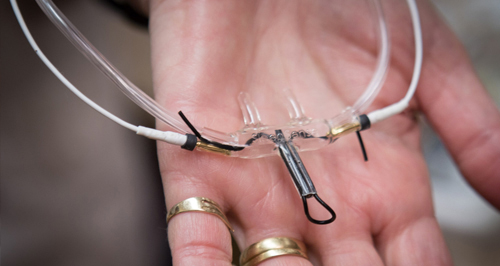Nocturnal Polysomnogram
The Nocturnal Polysomnogram (NPSG or PSG) is an overnight "sleep study" conducted in the sleep lab. It is the most objective way of determining what is going on in your sleep and whether you have a sleep disorder.
It is monitored by a trained technician to objectively evaluate your sleep.

There are tiny electrode cups glued with a water soluble paste on your scalp to monitor brain waves (EEG). The EEG enables the technician to determine when you go to sleep, how deeply you sleep and how often you wake up.

A sensor monitors airflow through the nose or mouth.

Elastic belts around the chest and abdomen monitor breathing movement.

Electrodes glued on the chest monitor heart rate and rhythm (EKG) and Electrodes glued on the legs monitor leg movements and twitching.

A sensor on your finger monitors blood oxygen.

If you need assistance during the night, pushing the call-bell button will immediately summon the technician. If you need to get up to go to the bathroom, the technician will unhook you.

There is an infrared camera and a microphone so the technician can see and hear you.


